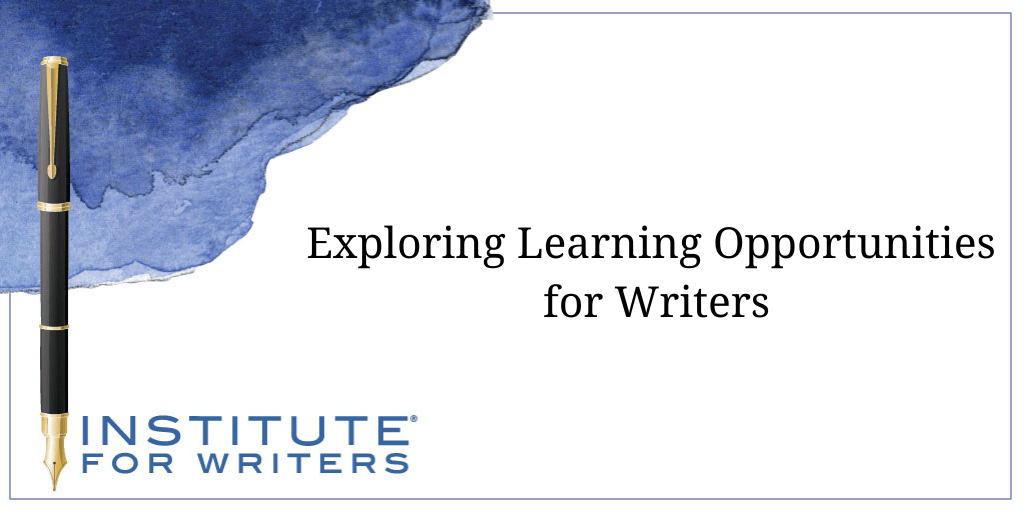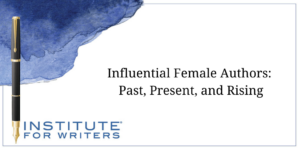
Why Submitting to Contests is a Win-Win
Should you enter a writing contest or not? If your writing rises to the top, you just might win a prize upwards of thousands of dollars if you’re lucky.

The previous blog post was intended to get you thinking about the new school year that is upon us—and how it applies to you and your writing. Now that you are in the back-to-school mindset, here are some learning opportunities for writers so you can go back to school yourself and hone your skills in the craft of writing.
 Find Opportunities in Your Area
Find Opportunities in Your AreaI am fortunate to live in the city that is home to the most esteemed writers program in the world. Although acceptance to the Iowa Writers Workshop is difficult, their Summer Writing Festival is open to anyone who wants to take a week or weekend to learn from acclaimed published writers. I have taken courses as part of this excellent learning opportunity in past summers, but this year I am taking advantage of their free-to-the-public Eleventh Hour lectures.
These one-hour talks are given by instructors at the festival and are varied and interesting. A few recent lectures included a discussion of how anecdotes can become stories, ways to approach a first chapter, diving into research, and a talk about writing the supernatural.
These lectures are videotaped and posted online. It is worthwhile to access those you find interesting and to stick around for the question-and-answer session at the end for some further helpful information.
Look out for networking and learning opportunities for writers in your area. These are often mentioned in online newspapers, on social media, and by talking with other writers.
Author talks and book readings that involve writers and topics of personal interest are usually an excellent opportunity for anyone who writes to learn more about the writing process. These writers have successfully published their book and are actively marketing it. Listening to their experiences and what they may share about their personal writing journey can provide helpful information for your own writing. Take advantage of opportunities to ask questions of the writer and consider formulating one or two beforehand.
 Independent bookstores, coffee shops, and public libraries in many cities host author readings. It is a good idea to follow these local places on social media or go to the business’ website and look at their calendar of events. If you travel at all and find yourself in a big city, check out what the stores and libraries there have to offer. These are a unique opportunity to learn from and often chat with the author.
Independent bookstores, coffee shops, and public libraries in many cities host author readings. It is a good idea to follow these local places on social media or go to the business’ website and look at their calendar of events. If you travel at all and find yourself in a big city, check out what the stores and libraries there have to offer. These are a unique opportunity to learn from and often chat with the author.
Writers’ groups—where members read, comment, and critique each other’s work— may be tricky to find but can be worth the effort. Many established groups are hesitant to add new members, mainly because the group is likely cohesive and has been so for a while. For that reason, some writers who are looking for a group will post on social media and may also attempt to form their own.
By doing an internet search, those hoping to start a group can find basic parameters that many groups use. This time of year is a good time to find or create a group, since writers with children in school may have additional time to write and to critique other writers’ manuscripts.
Busy adults may find that listening to podcasts about writing may work with their lifestyle. Helping Writers Become Authors is a podcast that has an archive of over 500 episodes, making it one of the more popular and useful writing-themed podcasts. Consider allotting time to listen to a podcast of this type.
 Grammar Girl’s podcast is also still going strong, with interesting topics designed to help listeners improve their grammar skills. Do an online search and allot time to listen to those writing podcasts that may seem helpful to you and your writing.
Grammar Girl’s podcast is also still going strong, with interesting topics designed to help listeners improve their grammar skills. Do an online search and allot time to listen to those writing podcasts that may seem helpful to you and your writing.
If you write for children (the very young up to the YA market), you may already be a member of the Society of Book Writers and Illustrators, commonly known as SCBWI. This organization has been around for decades and is a treasure trove for writers. That’s because they have their discussion boards, where members can read or post pretty much anything that has to do with writing. Writers can find online critique and writing groups—both local and virtual. There are also listings of agents and editors who are seeking submissions and what they are looking for, and information about the regional, state, and national conferences that the organization does so well. It is worth taking a look at the website even if you are not familiar with it and then consider joining to take advantage of all the organization has to offer.
Many colleges and universities offer degrees in writing and although adult writers may not have the time or inclination to work toward an undergraduate or graduate degree at this point in life, taking a class can be productive and interesting.
Those writers who are looking to improve their skills with a writing class are in luck because there are many courses available both online and in-person. Check out your local community college catalog to see what they offer and enjoy the opportunity to attend a class in person. It is a good way to not only learn and improve skills but to meet other students who are interested in the craft. Doing an internet search of writing classes will show the programs available for varied ability levels and costs. All writers should research these opportunities carefully because taking a course of any kind is an investment of time and money.
As you probably know, the Institute’s courses are high-quality individualized instruction that is appropriate for all levels of writing. The courses’ unique one-on-one style allows students to see progress with their writing since individualized instruction with highly qualified instructors means working toward writing success.
 Instructors at the Institute are not editors, they are interested teachers (and experienced writers) who spend time reviewing and critiquing students’ manuscripts, with an aim toward helping students attain their writing goals. Taking a course with the Institute is a worthwhile investment in your writing, as many successfully published students can attest to.
Instructors at the Institute are not editors, they are interested teachers (and experienced writers) who spend time reviewing and critiquing students’ manuscripts, with an aim toward helping students attain their writing goals. Taking a course with the Institute is a worthwhile investment in your writing, as many successfully published students can attest to.
Check out the writing course catalog and take advantage of the rolling admissions (meaning that you can begin your coursework at a time that is convenient for you). You will enjoy being a student at the Institute and will see excellent progress in your writing skills.
Writing is a tough endeavor to pursue solo. Yes, most of us create ideas and do our writing by ourselves but without another set (or two, or three) or eyes reading what we have written, it is hard to know how effective we are at bringing out our ideas.
Taking a writing course, attending a class, joining a group, or enlisting another writer friend to talk about your work with you (as you reciprocate) are all good ways to take advantage of learning opportunities for writer during back-to-school time this year.
Susan Ludwig, MEd has been an instructor with the Institute of Children’s Literature for almost twenty years. Susan’s writing credits include teacher resource guides, English language learner books, and classroom curriculum for elementary through high school students. A former magazine editor, she assesses students’ written essays as a scoring director for the ACT and SAT exam. When she is not writing or working, she is usually found playing with her grandsons or curled up with a good book.

Should you enter a writing contest or not? If your writing rises to the top, you just might win a prize upwards of thousands of dollars if you’re lucky.

To many, writing is revision, and most writers revise their manuscripts numerous times before they’ve shaped it into the best version that it can be.

We’re going to look at influential female authors of the past, those impacting the present, and whom the industry expects to make a big splash.
1000 N. West Street #1200, Wilmington, DE 19801
© 2024 Direct Learning Systems, Inc. All rights reserved.

1000 N. West Street #1200, Wilmington, DE 19801
© 2025 Direct Learning Systems, Inc. All rights reserved.

1000 N. West Street #1200, Wilmington, DE 19801
©2025 Direct Learning Systems, Inc. All rights reserved. Privacy Policy.
1 Comment